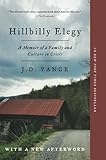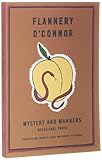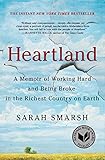Absolutism is a rhetoric of political convenience, a flashcard deck of judgments with Old Testament swiftness and certainty. Blue collar, white collar, and the billionaire class. Urban and rural. Red state versus blue state. Fact and fable. Each term generates its own litany of forgivable and unforgivable sins. These absolutes efface our desire to understand—a yearning necessary for true intellectual growth and narrative, as Malcolm Heath notes in the introduction to his translation of Aristotle’s Poetics.
Kelly J. Beard’s memoir, An Imperfect Rapture, speaks across the void between those absolutes. The youngest child to a set of parents devoted to each other and the fundamentalist principles of the Foursquare Church, Beard takes the courageous plunge back into the 1960s and ’70s of her youth. As she explores her past, she slowly shines light onto the events that scaffolded her childhood and adolescence: domestic violence, disability, mental illness, addiction, poverty, shame, and the dissonance between the promises of faith and the family’s dire financial straits.
Neither elegy nor ode, neither dirge nor fanfare, Beard’s memoir carefully attunes the harmonic resonances between her memories, her vulnerability, and her own capacity for forgiveness. The first scene presents these elements with a dynamic swell. The opening paragraph is a single sentence—“My mother saw demons.”—a fierce downbeat that pulls the reader into a tangle of fraught intimacies. In this scene, Beard’s mother is confiding in her Bible study group from Palm Spring’s Desert Chapel. As a member of the church’s telephone prayer chain, she received calls to minister to the ill, or to those showing signs of demonic possession: “My mother told the circle of women about a call she received the night before. A boy. A teenager who came home from youth services to find his mother naked, thrashing in the shallow end of the pool, gurgling like a baby.”
Beard’s parents leave their own children at home to minister to her; they “stayed all night, praying with the woman in the pool.” It’s a harrowing story. Yet, through this scene, Beard telegraphs the issues that vexed her early years. Her parents’ dedication to each other and their faith left their children neglected and abandoned—even if the kids were unaware of it at the time. As Beard’s mother recalls the prayer visit to the woman in the pool for her church group, the events of the previous night pulse for Beard with the discomfort of a dull ache:
I thought about Mama waking me the night before, how I’d listened to Daddy peeing in the tiny turquoise and white tiled bathroom across the hall while she told me they were leaving to pray for a lady. I begged to go along. No, she said, we think she’s demon possessed, we can’t let you get that close. The toilet flushed. She disappeared into the dark.
I lay awake the rest of the night, my cotton gown sticky as I listened to my sister’s rhythmic huffs in the bunk below. She slept through everything.
The moment is an otherworldly snapshot of a night in the Beard household, perfectly compressed. The Palm Spring house is claustrophobic—she can hear her father in the bathroom and she is literally bunked snug above her sister. Here, Beard intimates a few truths about her family. Her parents are on a mission, together. They believe in the power of prayer above all else. And for those two things, they’ll leave their children in the dark of night.
Despite this vague awareness, Beard writes, “I knew I was vulnerable. This knowledge kept me pinned to the floor at her feet, week after week, my cheek pressed against the cream-and-black speckled linoleum, the yellow ties of her apron dangling out of reach.”
It’s not hard to imagine Beard as a child reaching for her mother’s apron strings, in the hope of grasping some tether to genuine affection, with true comfort always out of reach.

 Vulnerable and hurt, yet patient and forgiving, Beard’s tone throughout the memoir evades the polemical rage of memoirs like J.D. Vance’s Hillbilly Elegy, which wield domestic violence, poverty, and substance abuse as an ideological cudgel. As Flannery O’Connor puts it in her essay collection Mystery and Manners, “Our response to life is different if we have been taught only a definition of faith than if we have trembled with Abraham as he held the knife over Isaac.”
Vulnerable and hurt, yet patient and forgiving, Beard’s tone throughout the memoir evades the polemical rage of memoirs like J.D. Vance’s Hillbilly Elegy, which wield domestic violence, poverty, and substance abuse as an ideological cudgel. As Flannery O’Connor puts it in her essay collection Mystery and Manners, “Our response to life is different if we have been taught only a definition of faith than if we have trembled with Abraham as he held the knife over Isaac.”
And the Beard family certainly trembles. The children cower if their father wears a certain belt, because they know the slightest accident or indiscretion—something as simple as spilling milk—can provoke him. They endure his physical lashings, alongside the verbal ones doled out by their mother. (While she does not condone the abuse, Beard’s empathy compels her to grapple with her parents’ specters: her father’s impoverished upbringing, her mother’s loneliness.) Beard contends with eyesight bad enough to render her legally blind, but the blessings of modern optometry pale when a prayer meeting seems to heal her sister’s eye: “For my parents, Barb’s experience seemed to dilute the miracle of the half-inch thick glasses that focused my sight.”
But there are perils beyond the household and the church. When Beard’s father loses his job as a salesman for Farmhand equipment, life in Palm Springs becomes untenable. The family uproots for Colorado, then Montana, as her father chases odd jobs (traveling salesman, newspaper routes, ranch hand, and more) to provide a home for the family—not an easy task, for a man well beyond his middle years. Naturally, to resolve this apparent trial of Job, her parents turn to prayer. “And as happened more times than not,” Beard writes, “the answer to their prayers cost more than they expected.” Beard’s mother finds that her credits in a nursing program won’t transfer, and she has to retake classes in Colorado—amplifying her vindictiveness.
To compensate, Beard cycles through a revolving door of friends and experiments with drugs. For another memoirist, it would be easy to resort to a rhetoric of absolutes, of vindictive condemnation. But Beard’s elegant and direct prose teems with complexity and nuance. Moreover, with the benefit of hindsight, the memoir peels back the rind of anger and finds within a morsel of grace.

 A pivotal scene demonstrates how the memoir shucks off the visceral, immediate reactions that might occur in real life, in fiction, or in a spur-of-the-moment telling. Beard’s parents had promised that she, then a teenager, could trick-or-treat with her friend Denise; instead, her parents saddle her with humiliating chores and her father beats her. For revenge, she runs off with Denise, and the two bunk away in a dorm room at the University of Colorado. There’s a hint of sexual awakening when, in the dorm room, “Denise and I glanced at each other like newlyweds.” And their time in the dorm lights in her an epiphany that, in the twilight years of her adolescence, will spark a passion for music and creative writing. “[I]t never occurred to me,” Beard writes, “that college could be exciting or anything other than a means to a job like teaching or nursing.” (Here, Beard’s work resembles such kin as Sarah Smarsh’s Heartland or Tara Westover’s Educated: In all of these memoirs, education equips the author with the desire to understand and the capacity to forgive.)
A pivotal scene demonstrates how the memoir shucks off the visceral, immediate reactions that might occur in real life, in fiction, or in a spur-of-the-moment telling. Beard’s parents had promised that she, then a teenager, could trick-or-treat with her friend Denise; instead, her parents saddle her with humiliating chores and her father beats her. For revenge, she runs off with Denise, and the two bunk away in a dorm room at the University of Colorado. There’s a hint of sexual awakening when, in the dorm room, “Denise and I glanced at each other like newlyweds.” And their time in the dorm lights in her an epiphany that, in the twilight years of her adolescence, will spark a passion for music and creative writing. “[I]t never occurred to me,” Beard writes, “that college could be exciting or anything other than a means to a job like teaching or nursing.” (Here, Beard’s work resembles such kin as Sarah Smarsh’s Heartland or Tara Westover’s Educated: In all of these memoirs, education equips the author with the desire to understand and the capacity to forgive.)
After a few days spent smoking and lingering together in a twin bed, Denise decides to go home, which triggers intense feelings of abandonment and fear: “In my head, I begged please don’t leave me please don’t leave me please don’t leave me.”
The memoir refuses to rage against Denise. Beard ends the scene and the paragraph, stating, “It will take me more than thirty years to see her decision as grace, to understand her mother’s desperate barter.” She glances toward the future, Halloween of 2004, when her own daughter gathers with friends before trick-or-treating. She sees in them a reflection of her young self: “In that moment, an opaque film will dissolve from my inner eye, and I will see in them what I missed in myself: how delicate their limbs, how fragile their lives. I will see the intricate, mostly inarticulate ties binding mother to daughter. I will glimpse an angel.”
What is truly masterful in An Imperfect Rapture, though, is the texture of Beard’s prose and her capacity to inflect each sentence with urgency, insight, and compassion. Like life, narrative involves so many acts of faith, ones that demand us to accept and revel in the fraught and the complex. That Beard transcends righteous anger through an ethic of forgiveness and tolerance—an ethic that demands that readers abandon the easy ideology of absolutes and assumptions—is an added grace of this vital memoir.










